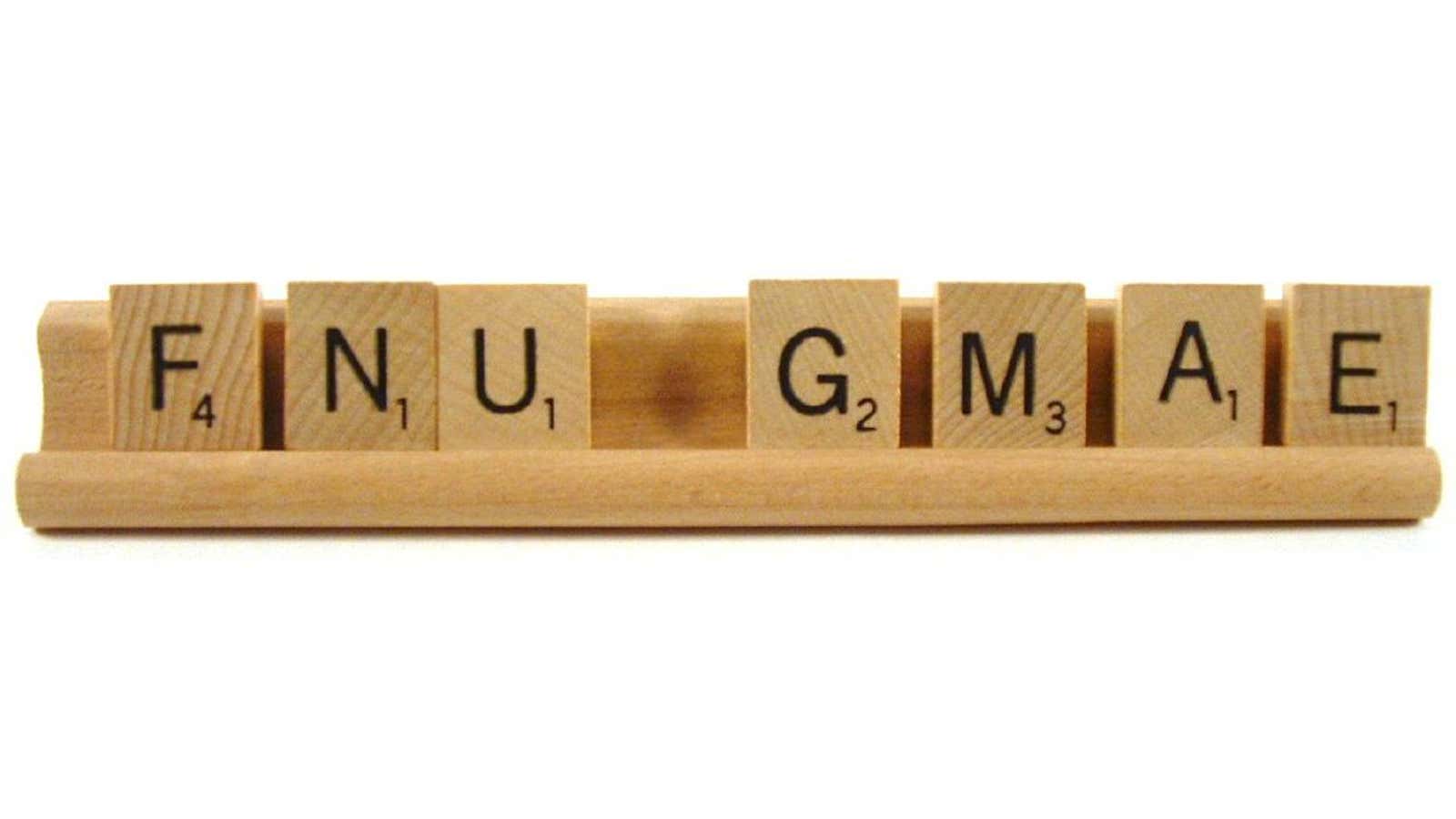A fizza-ma-wizza-ma-dill is the shizzle.
Dr. Seuss and Snoop Dogg have more than just a permanent smirk in common—they are both liberal employers of made-up words that use the uncommon letter “z.” And, as a new study shows, there may be a reason such words make us giggle.
According to the study, which will be published in the January 2016 issue of Journal of Memory and Language, some words are reliably much sillier than other words, and one reason is that they use improbable letters.
Psychologists and linguists from the University of Alberta in Canada and the University of Tübingen in Germany showed over 900 participants a total of 6000 made-up words designed to sound close to real, pronounceable words to determine which strings were deemed reliably funnier.
Based on the participants’ responses, the researchers created a model to predict how humorous a made-up word would be. Eliminating strings that sound like actual obscene words (like “dongl,” “shart,” “focky,” and “clunt”), which risk inducing giggles on their own, the researchers tested their model on 56 fluent English speakers, and found that unlikely words were reliably deemed funnier.
Nonsense words like “himumma,” “suppopp,” “finglam,” and “pachang” were deemed most funny, while “advical,” “rousent,” “menclar,” and “materal” were judged least.
Chris Westbury, lead author of the study, tells Quartz that the results evoke Schopenhauer’s idea that humor comes not just from something incongruous but from a violation of our expectations.
He added that one limitation of the study is that the researchers didn’t look at the actual content of the letter combinations deemed funny, which is the subject of a new study he and his team are working on. They also hope to look at the probability of phrases and how funny they seem—”existential llama” versus “angry llama,” for example.
Ultimately, Westbury concedes, the study actually highlights how difficult it will be to study humor in the real world, where there are endless un-quantifiable ways to create the mismatches that seem necessary for something to be funny. Probble to rizzle.
